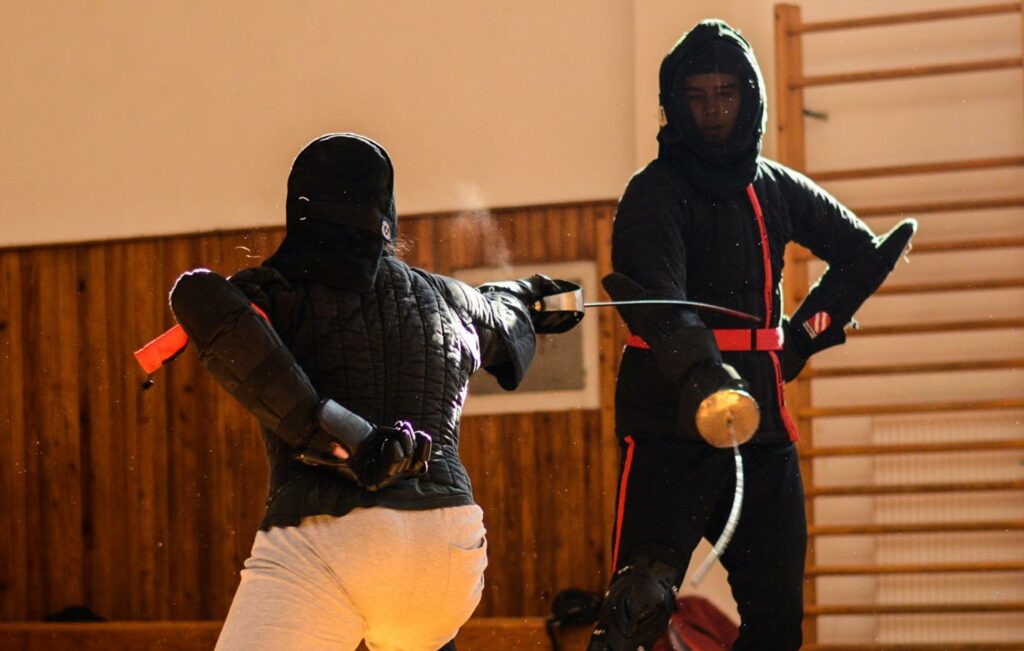What do we do?
Canne de défense (self defense with a stick)
With the prohibition of weapons within city limits, 19th-century upper-class Parisians found an evident alternative for dueling and street fights: wielding their walking canes, thus giving a new purpose to this fashion accessory. What began as simple fencing with a cane in place of a sword soon evolved into a fighting method better suited to the changing weapon landscape. As a result, cane masters emerged, establishing academies and offering lessons to residents of many large Western European cities, which were plagued by street gangs and hooligans at the turn of the 20th century. Over the years, each master developed their unique method for using the cane in combat. These diverse fighting systems have been preserved through manuals and continuous practice, providing a foundation for studying various methods of self-defense using a cane or similar stick-like objects.
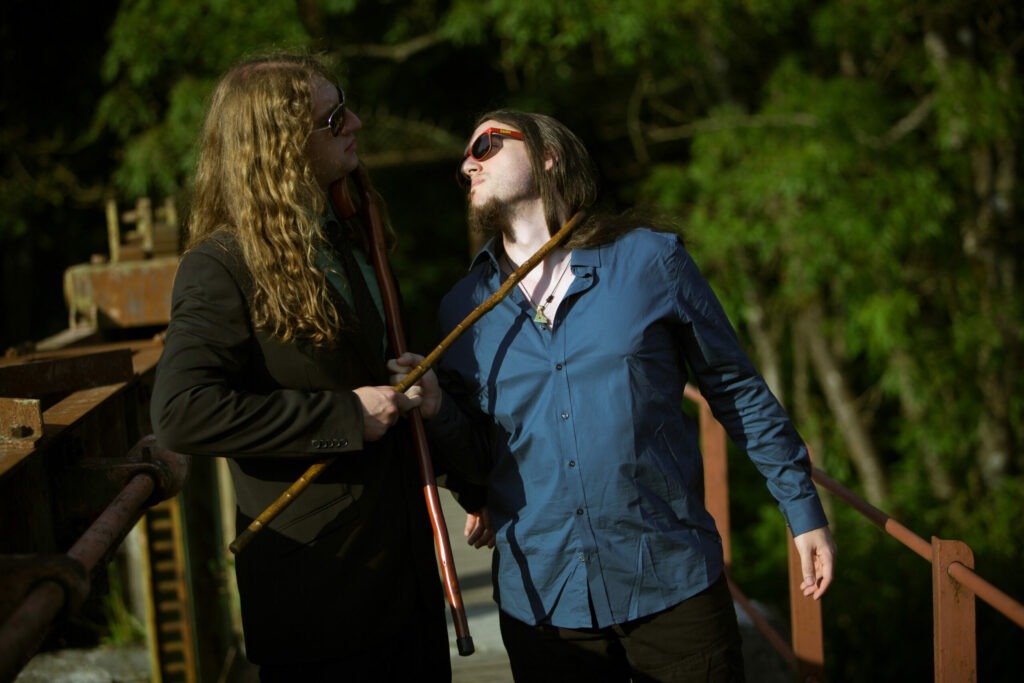
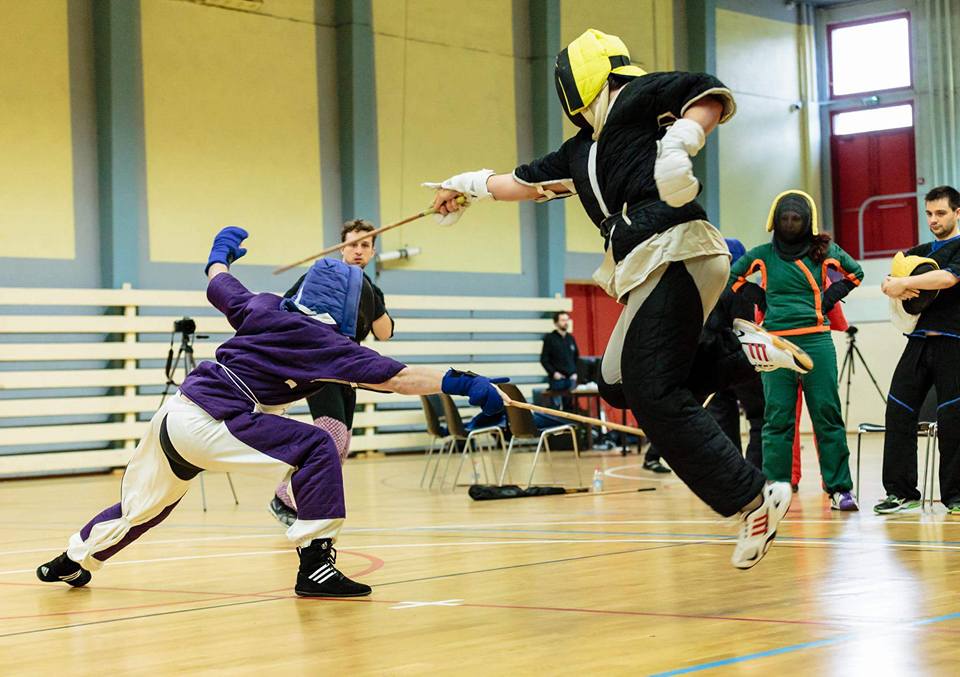
Canne de combat (stick fighting)
Practicing self-defense techniques with a cane proved highly beneficial and found application in the training of various militant groups and even scouts. In the 1970s, these defense techniques were refined and organized into what we now know as Canne de Combat. The result is a dynamic competitive sport that attracts individuals seeking both a physically demanding and aesthetically pleasing workout, as well as those in search of a strategically rich combat experience. Canne de Combat is a light-contact sport that adheres to a set of rules designed to ensure the safety of the participants. Members of Canne Klub Kamnik with a competitive spirit relish the opportunity to test their skills in international competitions.
Double canne (double-handed stick fighting)
A fighting method that involves using two single-handed canes. The additional weapon offers several technical and tactical advantages compared to single-handed fighting. This enjoyable and challenging technique can be practiced in friendly competitions.
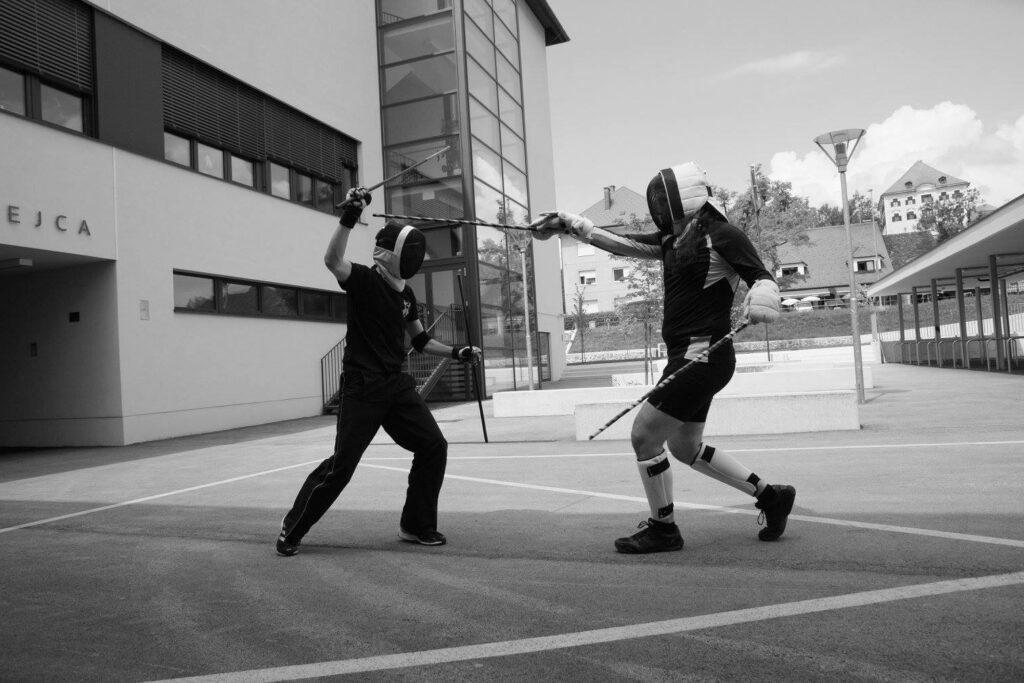
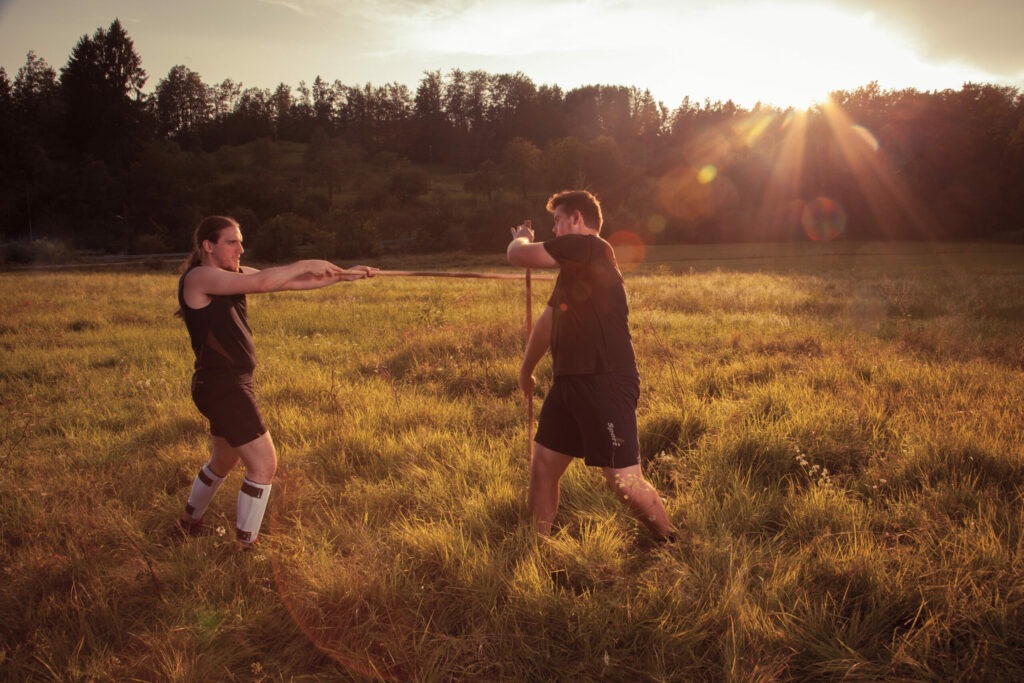
Bâton (staff)
The bâton is a larger and heavier weapon in comparison to the cane. Due to its increased potential for danger, this two-handed weapon is reserved for highly restricted fighting scenarios, where there is greater emphasis on style and cooperation with your opponent.
HEMA
Historical European martial arts (HEMA) are martial arts of European origin, particularly using arts formerly practised, but having since died out or evolved into very different forms.
